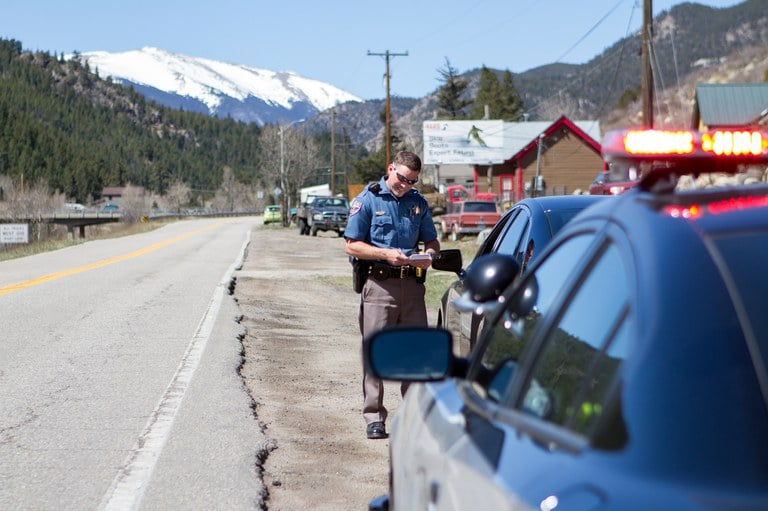How does law enforcement know I’m high?
Drug Recognition Experts — DREs — use specialized training to detect high drivers
Every year, a third of Colorado crash fatalities involve suspected impairment, and according to the the Colorado Department of Public Health and Environment, 18.4% of Colorado cannabis consumers have driven within two hours of consuming cannabis in the past month. Motorists who drive while under the influence of drugs might not believe law enforcement can tell that they’re impaired, but specialized training helps these officers detect high drivers and enforce impaired driving laws.
Driving under the influence of drugs puts everyone on the road at risk, and it’s against the law. Impaired driving slows reaction times, weakens judgment and reduces coordination, making it unsafe to operate a vehicle. Understanding the risks and planning for a sober ride are crucial steps to keeping yourself and others safe on the road.

Drugged Driving Overview
- You can’t drive safely when you’re impaired. Legal and illegal substances including marijuana, opioids or methamphetamines can impair drivers.
- Driving while impaired by any substance is against the law in all 50 states and the District of Columbia.
- Drugs can slow coordination, judgment and reaction times, making it unsafe to get behind the wheel.
- In 2023, 33% of drivers killed in car crashes tested positive for one or more drugs in their system including alcohol.
- Using multiple types of drugs at the same time can amplify the impairing effects of each drug that’s been consumed.
Law Enforcement Can Tell
- A Drug Recognition Expert (DRE) is an officer specially trained to recognize impairment in drivers under the influence of drugs other than, or in addition to, alcohol.
- Officers trained as DREs are often called upon to differentiate between drug influence and medical and/or mental disorders and training is an extremely valuable tool in combating the adverse impact of drug and alcohol impaired driving in our communities.
- Over the course of Colorado’s entire DRE Program, 719 Colorado law enforcement officers have completed DRE training.
- As of 2021, there were 179 active DREs across 62 agencies in Colorado.
- The DRE Program is active in all 50 states and the District of Columbia.
- Most traffic safety officers who are not DREs are trained in Advanced Roadside Impaired Driving Enforcement (ARIDE) and have additional training in drug-impaired driving.
- All officers can arrest drivers impaired by any substance, including alcohol, marijuana, prescription medications or other drugs.
Impairment from any legal or illegal drug makes it dangerous to get behind the wheel. The best way to ensure roadway safety for all is to plan ahead. Never drive high, and always arrange for a sober driver. Safe roads start with responsible choices.
For more information, visit trafficsafetymarketing.gov/safety-topics/drug-impaired-driving.
